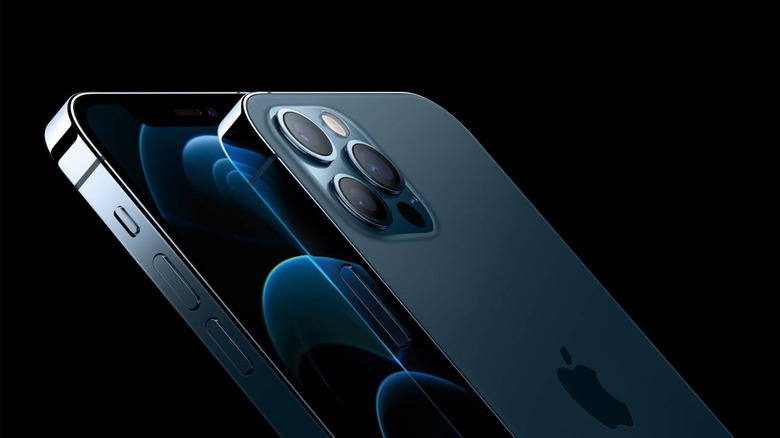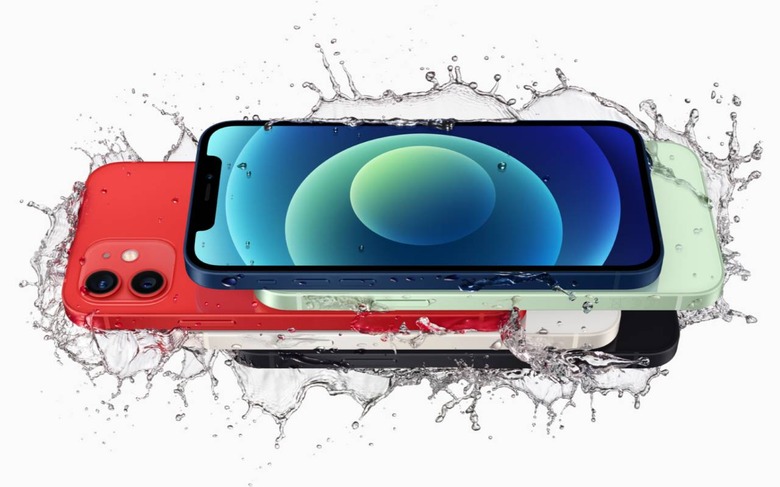iPhone 12 And iPhone 12 Pro Review Round-Up - The Apple 5G Verdict
The first iPhone 12 and iPhone 12 Pro reviews are out, putting half of Apple's 2020 flagship line-up through its paces. If you're hoping for the final yay/nay on whether to buy an iPhone 12 mini or an iPhone 12 Pro Max, you'll have to wait a little longer – they're shipping later this year – but the iPhone 12 and iPhone 12 Pro are arguably likely to capture the most mainstream users.
This year, all eyes were on how Apple could handle multiple challenges at once. Not least, there's the introduction of 5G, the iPhone's first taste of fifth-generation cellular networks. That could easily have introduced battery issues.
The good news is that 5G doesn't seem to be a battery hog. Whether it's iOS' data balancing system that promises to intelligently switch between 4G and 5G, or just the paucity of power-hungry mmWave 5G networks available right now, the iPhone 12 and iPhone 12 Pro make it though a full day without issue, Engadget reports.
Actually buying either Apple phone for 5G, though, isn't necessarily a good idea. "It's best to think of 5G as an invisible feature," the WSJ says, "something that might one day come in handy." While the speeds can be super-fast, most of the time there's not going to be a huge uptick in performance from most 5G networks as they are today.

Apple's new MagSafe for iPhone system is a welcome reboot of the old name, too. Your MacBook Pro might charge via USB-C these days, but the new magnetic charger for the iPhone 12 and iPhone 12 Pro has plenty of promise, The Verge reports. Saying that, a rich ecosystem of MagSafe-based accessories is still some way out, so for now the key might be 15W maximum wireless charging rates versus the 7.5W that Apple limits third-party Qi charging pads to.
As for the new LIDAR sensor on the iPhone 12 Pro – and which will be included on the iPhone 12 Pro Max too – that's also promising but hardly essential at this stage. "The new iPhone 12 Pro has a lot of things you won't be able to do much with right now," The Verge concludes, of which the LIDAR camera is one of them.
The remaining cameras are great, though not a huge upgrade over last year's iPhone 11 cameras, Wired says. CNET praises the autofocus speed and the low-light performance in both stills and videos. Of course, the iPhone 12 Pro adds a telephoto sensor which the iPhone 12 doesn't have.

There are some lingering frustrations, of course. No 120 Hz display is annoying for the iPhone 12 Pro's price, Wired points out, and for some shoppers, the absence of headphones and a charger in the box will be annoying, TechCrunch flags. Of course, Beats Flex has you covered on half of that problem, at least.
Out of the two, the general consensus seems to be that most people should pick the iPhone 12. Stepping up to the third camera and an uptick in case materials costs you $150, though though you do get twice the base storage for that too. The biggest question is how the other half of the new iPhone line-up may change that conclusion, but for that we'll have to wait a little longer.
